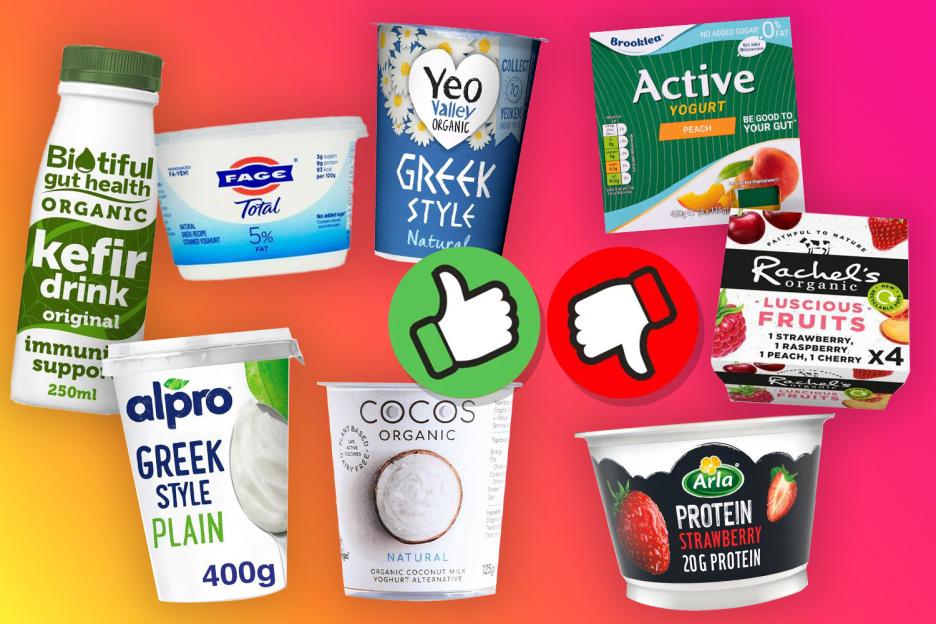THE colder, darker months can quietly wreak havoc on our skin – and our lifespans.
become deeper, dryness sets in, and our risk of illness increases. .
 Autumn and winter can age us prematurely, experts warn – but there are ways to combat itCredit: Getty
Autumn and winter can age us prematurely, experts warn – but there are ways to combat itCredit: Getty
But simply moving our desks closer to the window, taking a 2p pill daily, and eating a square of every night could help to reverse that damage.
That’s according to Dr Mohammed Enayat , GP and founder of longevity clinic HUM2N , who is 41 but has a of just 24.
He tells Sun Health: “When people think about ageing, most assume that summer is the most damaging season.
“After all, the sun’s UV rays are the number one external driver of wrinkles, pigmentation, and premature skin ageing.
“But surprisingly, it’s autumn and winter that can speed up the deeper, biological processes of ageing.
“I call this the ‘autumn ageing accelerator’ – a set of hidden forces in colder, darker months that quietly work against our healthspan.
“These include disrupted circadian rhythms, higher baseline inflammation, repeated immune strain from viruses, and environmental stressors that damage our skin and mucosal barriers.
“Left unchecked, these stressors increase the body’s ‘wear and tear’ at the cellular level, making us age faster than we realise.”
It’s not all bad news though. “With a few targeted strategies, you can protect your body and even strengthen resilience,” Dr Enayat adds.
“Here’s the science behind why autumn and winter can accelerate ageing and eight evidence-backed tips to counteract it.”
WHY AUTUMN AND WINTER SPEED UP AGEING
1. Darker days
ONE of the worst parts of autumn and winter is the shorter days.
Let’s face it – leaving for work in the morning in the dark and returning home in the evening when it’s pitch black is an instant mood killer.
But it’s not just our that can take a hit.
“Our circadian rhythm, our internal clock that runs on roughly a 24-hour cycle, governs everything from sleep to hormone balance and cellular repair,” Dr Enayat says.
“Daylight is the master switch. And in autumn and winter, shorter, darker days blunt this signal, leading to disrupted rhythms.
“When your circadian rhythm is out of sync, it doesn’t just mean poor sleep; it impairs the timing of DNA repair, detoxification, and tissue regeneration.
“Over time, that disruption can accelerate biological ageing.”
2. ‘Inflammageing’
“POPULATION studies show inflammatory markers rise in colder months too,” Dr Enayat says.
“This may be due to changes in activity levels, increased viral exposure, and the body’s response to cold stress.
“Chronic, low-grade inflammation, also known as ‘inflammageing’, drives the very processes that underpin ageing – oxidative stress, tissue breakdown, and impaired repair.”
 Every cold or bout of Covid or flu you get contributes to ageing, Dr Enayat saysCredit: Getty
Every cold or bout of Covid or flu you get contributes to ageing, Dr Enayat saysCredit: Getty
3. Immune strain
THE period between October and March is also the peak season for colds, , and .
“Each infection causes a spike in inflammation, oxidative damage, and immune activation,” Dr Enayat says.
“While our bodies are designed to deal with this occasionally, repeated infection over a season piles up, leaving a biological toll.”
4. Environmental stressors
EVEN if you manage to escape all bugs, simply sitting at home or taking the dog for a walk could be damaging.
Dr Enayat says: “Cold outdoor air and dry indoor heating can strip moisture from the skin and airways.
“This damages the skin barrier, increases visible signs of ageing like fine lines, and weakens mucosal defences that normally help prevent infections.
“A stressed barrier is slower to repair and more vulnerable to long-term damage.”
Biological vs chronological age
PUT simply, your chronological age is how long you have existed. In most cultures, this is how many years have passed since you were born.
Biological age on the other hand is a little more complex.
It is to do with how old a person’s cells and tissues are based on several factors, including diet, exercise and health conditions.
If someone is fit and healthy, they may have a younger biological age than their chronological age.
But if someone is overweight, has health problems or lives a sedentary lifestyle, their biological age may be higher.
An older biological age is associated with an increased risk of diseases like diabetes, and it could be a predictor of earlier death.
There are numerous quizzes and tests available, but there is no simple way to calculate your biological age.
5. SAD
“AS the days shorten and nights draw in, we tend to move less, eat more comfort foods, and drink more alcohol,” Dr Enayat says.
“Social interactions often reduce, and many people experience (SAD) – sometimes called winter depression.
“This lifestyle shift feeds inflammation, disrupts hormones, and adds to psychosocial stress, all known accelerators of biological ageing.”
HOW TO BEAT THE ‘AUTUMN AGEING ACCELERATOR’
DON’T panic though. These things don’t automatically mean you’re going to look haggard come spring.
And there are some simple steps you can take to reduce the toll the colder months take on your face and body.
1. Bask in the morning light
FOR starters, get as much sun as you can.
Dr Enayat says: “Daylight is the strongest cue to reset your circadian rhythm.
“Without enough exposure, your body’s timing drifts, leaving you sluggish in the day and restless at night.
“Circadian misalignment has been linked to impaired cognitive performance, higher inflammation, and faster epigenetic ageing.
“To combat this, get outside within an hour of waking for 10 to 20 minutes of natural light.”
You could even try moving your desk closer to the window to maximise your intake, or swap your lunchtime scroll for a stroll.
“Even on cloudy days, daylight is several times more powerful than indoor bulbs,” Dr Enayat says.
 Prioritising sleep during the colder months is crucialCredit: Getty
Prioritising sleep during the colder months is crucialCredit: Getty
2. Protect your sleep
ALSO prioritise your .
Dr Enayat says: “Sleep is when your body does its deepest repair work.
“Poor sleep shortens telomeres (the protective caps on DNA), raises inflammation, and disrupts immune function.
“Over time, chronic poor sleep is a proven driver of biological age acceleration.
“To combat this, aim for seven to nine hours of sleep each night.
“Set a consistent bedtime and wake up time – even at weekends.
“Create a wind-down routine by switching off screens 60 to 90 minutes before bed, dimming the lights, and avoiding caffeine or alcohol late in the day.
“Also, keep your bedroom cool, dark, and quiet.”
3. Top up your vitamin D
COULD you be ?
From about late March to the end of September, most people should be able to make all the vitamin D they need from sunlight on their skin.
But Brits know all too well that sunlight is in short supply through autumn and winter.
For that reason, the NHS recommends we take a vitamin D . Adults and children aged one and above need 10 micrograms daily, while babies need 8.5 to 10.
You can buy a pot of 180 pills from for £4, working out at just 2p per tablet.
Over the winter months, focus on whole foods, colourful vegetables, legumes, whole grains, nuts, seeds, and oily fish
Dr Mohammed Enayat
Other sources include: oily fish like salmon, red meat, egg yolks and liver.
Dr Enayat says: “Vitamin D levels decline in autumn and winter due to lack of sunlight.
“Low levels weaken the immune system, increase inflammation, and have been linked to bone loss, fatigue, and even low mood.
“Because vitamin D acts more like a hormone than a vitamin, deficiency has wide ranging effects on ageing.
“In the UK, the NHS recommends 10 micrograms daily during autumn and winter.
“People with darker skin, older adults, or those with little sun exposure may need higher doses, but this should be guided by a blood test.”
 The NHS recommends all adults in the UK take a vitamin D supplement between September and MarchCredit: Getty
The NHS recommends all adults in the UK take a vitamin D supplement between September and MarchCredit: Getty
4. Move more
GET your body moving in whatever way you like! Whether you’re a , spin class fanatic or simply love to skip, find what works for you.
Dr Enayat says: “Movement is anti-inflammatory, and resistance training specifically preserves muscle mass, which is one of the most important predictors of healthy ageing.
“Strong muscles support mobility, metabolic health, bone strength, and immune resilience.
“Without training, we naturally lose muscle with age, a process that accelerates in winter when activity often drops.
“Aim for at least 150 minutes of moderate aerobic exercise each week, like brisk walking or cycling, plus two or three resistance training sessions targeting major muscle groups.
“You don’t need a gym – bodyweight moves, resistance bands, or dumbbells at home work too.
“Adding short bursts of high-intensity activity, if you’re fit and cleared to do so, provides additional benefits for cardiovascular and immune health.”
 Foods high in polyphenols – like dark chocolate and berries – are great additions to your dietCredit: Getty
Foods high in polyphenols – like dark chocolate and berries – are great additions to your dietCredit: Getty
5. Eat to beat
DIET is important whatever the time of year. But is especially important during colder weather.
Dr Enayat says: “Diets rich in ultra-processed foods, sugar, and alcohol increase oxidative stress and inflammation, accelerating cellular ageing.
“Conversely, a nutrient dense, anti-inflammatory diet helps defend against these stressors and supports the microbiome, which plays a crucial role in immunity and longevity.
“Over the winter months, focus on whole foods, colourful vegetables, legumes, whole grains, nuts, seeds, and oily fish.
“Polyphenol-rich foods like berries, green tea, and dark chocolate support cellular repair.
“Include omega-3 fatty acids from salmon, sardines, flaxseed, or a high-quality supplement if you’re plant-based.
“Reduce refined sugar, alcohol, and processed foods, especially in the darker months when cravings tend to spike.”
If you need a sweet treat after dinner, opt for a small square of dark chocolate and a handful of blueberries over a big slice of cake!
6. Get the balance right
WHEN it’s freezing cold or chucking it down outside, curling up in front of is a no-brainer.
But watch how often you’re or putting the fire on, Dr Enayat warns.
“Cold outdoor air and heated indoor environments create very dry air, which stresses both the skin and airway linings,” he says.
“Low humidity reduces mucosal clearance, making you more susceptible to respiratory infections, and accelerates visible skin ageing. Viruses also survive and spread more easily in dry air.
“To combat this, aim to keep relative humidity between 40 to 60 per cent. A cool-mist or evaporative humidifier can help if levels drop too low.
“Ventilate rooms daily with short bursts of fresh air, and consider air purifiers in high-traffic spaces.
“This protects your respiratory system and helps maintain youthful, hydrated skin.”
 You can look after your skin barrier by moisturising, using SPF and buying gentle productsCredit: Getty
You can look after your skin barrier by moisturising, using SPF and buying gentle productsCredit: Getty
7. Repair and protect
OUR barrier really takes a hit from cold winds and indoor heating.
“Dehydrated skin not only looks older, but micro damage to the barrier accelerates long-term ageing processes,” Dr Enayat says.
“At the same time, UV radiation, although lower in winter, still contributes to cumulative photoageing.
“To combat this, swap harsh cleansers for gentle, hydrating ones.
“Moisturise immediately after bathing to lock in hydration, using products with ceramides and emollients.
“Avoid long, hot showers that strip the skin and continue using SPF daily – UV damage doesn’t stop when summer does.”
8. Stay connected
WITH meals to plan, presents to buy and a never-ending to-do list at work, the run-up to can be particularly .
Take care to – for your mental and physical health.
“Chronic psychological stress is strongly linked to accelerated biological ageing,” Dr Enayat says.
“It raises cortisol, disrupts sleep, and increases systemic inflammation.
“Loneliness has also been shown to increase mortality risk and epigenetic age acceleration. Winter, with its darker days and reduced social activity, can magnify these risks.
“To mitigate the risks, build daily stress reduction rituals – this could be meditation and journalling or breathwork and gentle yoga.
“Also, prioritise social connection. Do this by scheduling walks, dinners, or phone calls with friends.
“If you suffer with seasonal affective disorder, consider light therapy or cognitive behavioural therapy, and seek help early.”
The foods and drinks causing you to age faster - and the best youthful swaps
CRISPS, cakes, , hot dogs, – it’s not rocket to know that these foods aren’t exactly healthy.
But what if you were told that they – would you cut back?
Experts say diet can increase your biological age, which refers to how old your body is, based on how fast it’s declining.
It can be older or younger than , which is how many years you have lived.
An accelerating biological clock will also make you look older.
“It causes cells to age throughout your body, and this affects the cells of your skin,” says Gemma Clare, functional nutritionist and integrative skin expert.
“While you may not be aware that your heart or lungs are ageing at a faster rate, the signs of are much more obvious on your skin and body.”
Unhealthy foods are usually either high in fat, sugar and salt, or all of these, and are referred to as ultra-processed foods (UPF).
A recent study by Monash University in , , found that for every 10 per cent increase in UPF intake, biological age goes up by 2.4 months.
It’s the equivalent of only 200 extra calories in a 2,000 calorie-per-day diet, which could amount to just a couple of biscuits.
In reality, though, UPFs account for at least half the average person’s daily food intake, research suggests.
If you think your diet could be in a downward spiral, here’s how to rein it in, and which foods could help.
Foods and drinks to avoid
- Sugar (swap fizzy drinks for sparkling water with fresh fruit, cereal for oats with berries, and milk chocolate for dark)
- Seed oils (swap for extra-virgin olive oil, coconut oil or avocado oil)
- Salt (swap for spices like paprika or cumin when cooking, crisps for unsalted nuts)
- Charred food (e.g. burnt toast)
- Processed meats (swap salami, hot dogs, pepperoni and deli meats for chicken and beef)
- Alcohol







